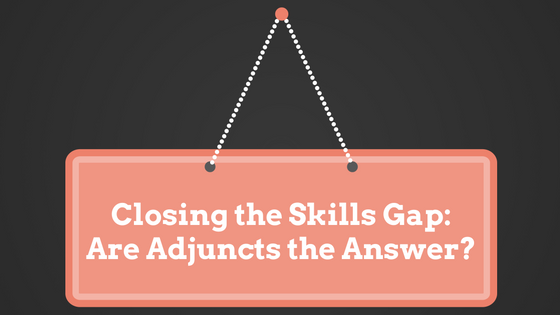
The skills gap is an issue that has been much debated in recent years. The skills gap refers to the discrepancy between the skill set needed to succeed in the professional world and the skill set with which students graduate. In the past, a bachelor’s degree has served as a reliable indicator that a young adult is prepared to enter the workforce, however, surveys have indicated that although students feel prepared, employers do not believe recent graduates are equipped with the skills needed to succeed in the present day workforce. According to a Gallup-Lumina survey, only 11% of employers thought recent graduates had the skills that their businesses needed. So which skills do employers think graduates are missing? And how can we begin to make strides to close this gap?
Across the board, employers are generally satisfied with graduates’ hard skills, however, their soft skills are lacking greatly. According to a study conducted by AACU, 75% of employers believed recent graduates were not well prepared in critical thinking and analytic reasoning, written and oral communication, complex problem solving, innovation, creativity and applying knowledge and skills to real-world settings. Employers are focusing less on student’s choice of major and more so on their non-cognitive skills. “More than three in four employers say they want colleges to place more emphasis on helping students develop five key learning outcomes, including critical thinking, complex problem-solving, written and oral communication, and applied knowledge in real-world settings.” (Hart Research Associates)
So how can we begin to bridge this gap?
If one of the goals of higher education is truly to prepare students to be contributing members of society, higher education must evolve with the professional world and its needs. Communication and collaboration between employers and higher education are critical in bridging the skills gap. It is imperative that higher education institutions are knowledgeable about the skills students will need to succeed in the present day workforce so that they may adapt student learning outcomes accordingly.
Adjunct faculty are a unique group of faculty that can perhaps help begin to bridge the gap. Working professionals possess a strong knowledge and understanding of how skills are being used in their industry. When they are present in the classroom, these skills are translated to students. This group of faculty is able to present examples and case studies from challenges and issues that face the world today. Students benefit by gaining a glimpse inside the role of a working professional in a given industry, and adjunct faculty are able to help ensure students gain the skills the workforce is demanding. Adjunct professors coupled with traditional tenure faculty can provide students with the full spectrum of skills they need to be successful in the workforce.

